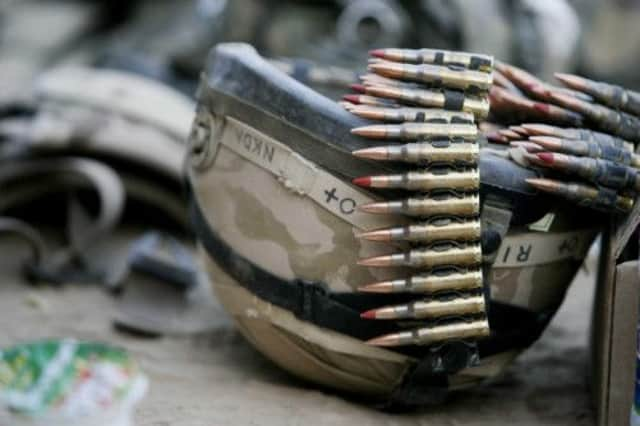Leaders: Armed forces ruling courts years of litigation


Perhaps it is truism to say it, but a theatre of war is a dangerous place to be. Soldiers are at risk from a range of factors other than enemy fire, including heat, exposure, exhaustion, friendly fire and accidents. Danger is inherent in the job, and inherent in the circumstances into which military personnel are placed. And recruits are well aware of this when they sign up. It is part and parcel of the deal they strike when they first put on uniform.
Throughout history, there has been debate as to whether various decisions made by commanders in the heat of battle were sound or foolish. Of course, some decisions can, with the benefit of hindsight, be shown to be misjudgments in the circumstances – and sometime these are dangerous misjudgments. But when someone joins the armed forces, they put themselves under command and, whether implicitly or not, they accept the potential consequences of those decisions.
Advertisement
Hide AdAdvertisement
Hide AdEvery soldier who goes into battle knows these risks. They know there is a chance that they will forfeit their life. So, with the best will in the world, the human rights legislation that protects the right to life cannot be legitimately applied to desert fire-fight.
Perhaps, in the light of this Supreme Court decision, some way will have to be found to codify this understanding as part of the process of signing up. Because the prospect of endless series of court cases brought by grieving families is not an edifying one.
For one thing, the process of trying to decide which soldiers died as a consequence of the normal perils of war, and which died as a consequence of negligent decisions by their superiors would be a thankless and pernicious task. With so many decisions and orders taking an individual serviceman or servicewoman into the circumstances under which they lost their life, how can they be untangled to form a coherent argument about who, if anyone, is to blame?
Different families deal with grief in different ways, and for those whose method is a deep and burning anger against the military top brass, regardless of circumstances or rational analysis, this decision will make them a honeypot for lawyers.
In fact, it is not hard to predict that it is lawyers who, ultimately, stand to benefit the most from yesterday’s Supreme Court decision. These cases will, by their nature, be long and complex. And, tragically, given this country’s losses in Iraq, there might be no shortage of litigants.
Yes, the armed forces must be accountable for their actions. But is this how it must be done? Is this really the best way for a grieving father or mother to seek closure?
Dundee deserving of accolade
THE campaign to win the title of UK City of Culture 2017 for Dundee starts here in earnest, and will have this newspaper’s full support.
The shortlist decision announced yesterday will be a disappointment for Aberdeen, which was also in the running, but the Granite City’s civic leaders were quick to congratulate their neighbour and promise backing for the Dundee bid.
Advertisement
Hide AdAdvertisement
Hide AdLet us a put aside for a moment whether in 2017 there will be a UK, never mind a UK City of Culture. For these purposes alone we should assume the status quo. What we can all agree upon, however is that Dundee can make a very strong case for this accolade.
Few cities have reinvented themselves as successfully as the City of Discovery, with its traditional strengths of jute, jam and journalism now supplanted by industries of the 21st century, notably biotechnology. On the cultural side, an arts revolution led by the Dundee Rep and Dundee Contemporary Arts has been complemented by a global reputation in the video gaming industry, placing the city in the vanguard of design in the digital age.
It was this reputation that persuaded the V&A to locate its first offshoot gallery in the city, in an iconic new building shortly to take shape on the waterfront, designed by Kengo Kuma.
Dundee is still a city with problems, with pockets of deprivation among the worst in Scotland, and the City of Culture accolade would be a useful tool to attract tourism and much-needed inward investment.
The city faces a tough fight against the other shortlisted cities, Leicester, Swansea and Hull. But this is an eminently winnable campaign, and we wish Dundee the very best of luck.